
MeRT Breakthrough Treatments for Depression
MeRT, Magnetic e-Resonance Therapy
Non-invasive, drug-free treatments with lasting results is showing incredible promise!

Call our New Patient Coordinator
Or fill in the Contact Form Below
Non-invasive, Drug-Free Treatments for Depression are here. There is Hope!
“Depression was the constant feeling of wanting to quit and retreat to my home—except I already would be home. MeRT helped me shed this feeling in less than two weeks. I couldn’t believe I had spent so many years feeling this way!” — Brain Treatment Center Patient
Depression is insidious, affecting not just your mood but also your ability to feel, think, and function in daily life.
And while there are many ways to treat depression, like therapy and medications, they don’t always work. They may also have side effects that can be hard to tolerate.
But there IS hope. It’s called repetitive MeRT or Magnetic e-Resonance Therapy.
MeRT is basically an EEG-guided rTMS, using FDA-approved protocols, a highly customized treatment — here at Brain Treatment Center Atlanta.
We have seen some incredible results with stubborn depression using this state-of-the-art magnetic stimulation of unused or “depressed” areas of the brain. And there are no side effects, such as those that may often occur with anti-depressant medications.
MeRT Treatment for Depression
MeRT is a very specific type of rTMS, which is also a drug-free, non-invasive treatment that uses a magnetic field to stimulate and balance brain function. Sophisticated imaging and diagnostics guide the MeRT treatment and it is even more customized than EEG-guided rTMS.
New research shows how the altered activity of certain neural circuits in the brain may contribute to depression. So, by mapping the brain, we can clearly see any imbalance in brainwave activity. This is then reviewed by a team of doctors and scientists who lay out an exact treatment protocol for each individual, based on their scans and symptoms. The location of treatment and frequencies used are tailored for the best possible results.
Through a highly personalized treatment plan using rTMS, we can strengthen the connections in the brain.

MeRT treatment has shown a significant reduction in depression symptoms.* And these results are long-lasting.
* Results are based on active and strict observation of our regimens. Results may vary based on the individual user and are not guaranteed.
If you are feeling suicidal, please call 911. You can also call the 988 Suicide & Crisis Lifeline by simply dialing 988.
Studies rTMS for Depression Treatment Prove Its Effectiveness
rTMS has been used for years to treat depression, Major Depressive Disorder (MDD), and Treatment-Resistant Depression (TRD). Many studies show the effectiveness of this non-invasive treatment. Here are some of the most recent:
- A 2023 meta-analysis was done of randomized sham-controlled trials. The analysis found that rTMS was significantly more effective than its sham counterpart in treating TRD. As they wrote:
“The results of this meta-analysis… proved that rTMS treatment may be used effectively in the treatment of TRD, as it offers the possibility of achieving not only a symptomatic response but also a complete remission in patients, who respond well to the treatment.” - An October 2022 meta-analysis studied data from nearly 3,000 patients from 65 randomized controlled trials. They confirmed rTMS as effective in treating depression symptom reduction, response, and remission.
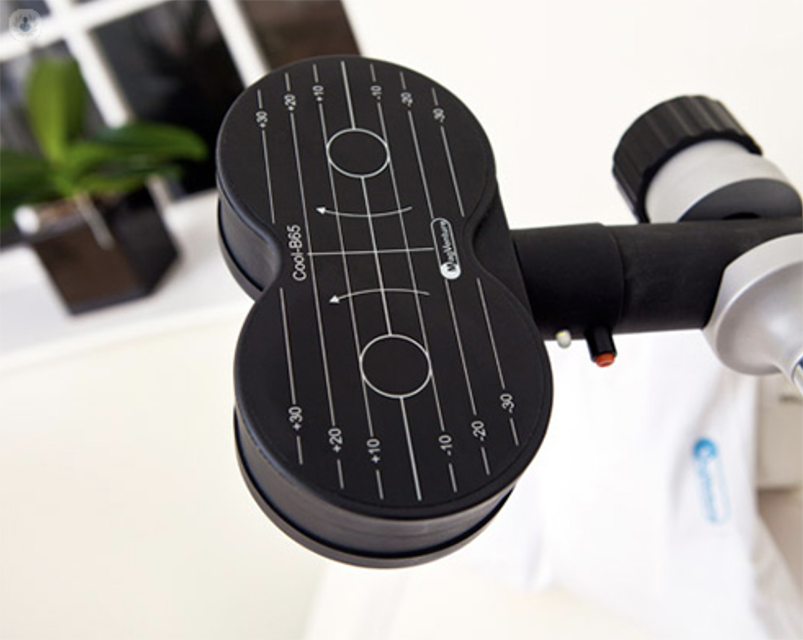
- A June 2022 review of 17 randomized controlled trials showed rTMS to be effective, safe, and tolerated in depression treatment, offering significant symptom relief.

For anyone suffering from depression, anxiety, and other symptoms, I highly recommend trying MeRT at the Brain Treatment Center. My adult son who has suffered from both problems his entire life, and has been on medication, realized a positive change after the first visit. We saw dramatic improvement after each visit. This technology is truly a magic bullet for the right candidate. The staff is professional and friendly. The facilities are equally professional. I would highly recommend The BTC to anyone.” – Harold H.
Psychiatric News Features TMS as a First-Line Treatment for Depression
An article featured in the October 2022 issue of Psychiatric News offers compelling evidence of the effectiveness of TMS in treating Major Depressive Disorder.
Dr. Richard A. Bermudes wrote the article after a ten-year study reviewing the effectiveness of TMS in treating depression. He concluded that TMS should be considered as first-line treatment for moderate-to-severe Major Depressive Disorder. He wrote:
As I read the [APA] guidelines recently and considered the number of new outcome studies conducted with TMS, I believe TMS should be considered in addition to pharmacotherapy and psychotherapy as a first-line treatment for patients with moderate to severe major depressive disorder.”
Read the entire article on the Psychiatric News website.
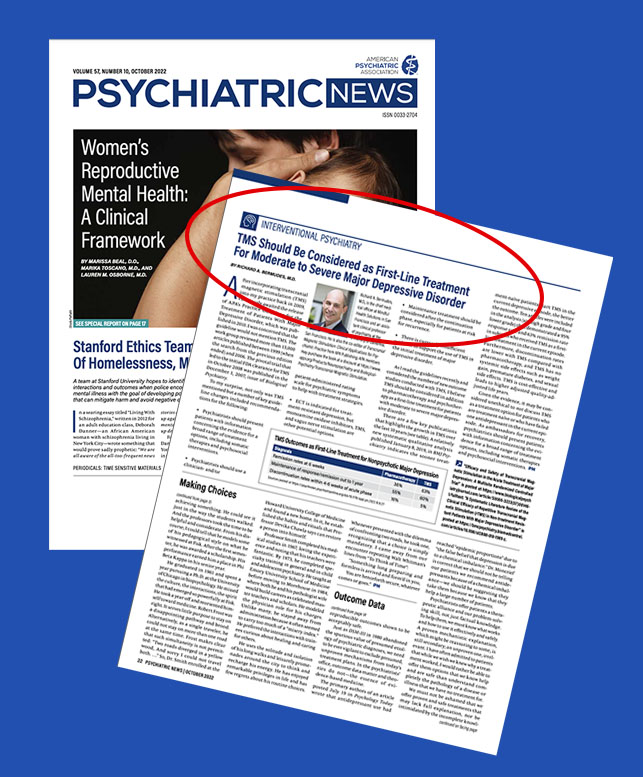
The Steps of Treatment for Depression
Your first step to determine if rTMS or MeRT is the right treatment for you is to call our New Patient Coordinator. She can answer any questions you have about the treatment, protocols, cost, and payment options. Then, once you decide to move forward, we will set up your first two appointments for testing and consultation. Each of these appointments will last 45 minutes to an hour. After this, you will have a two-week assessment period where the actual procedure and monitoring take place.
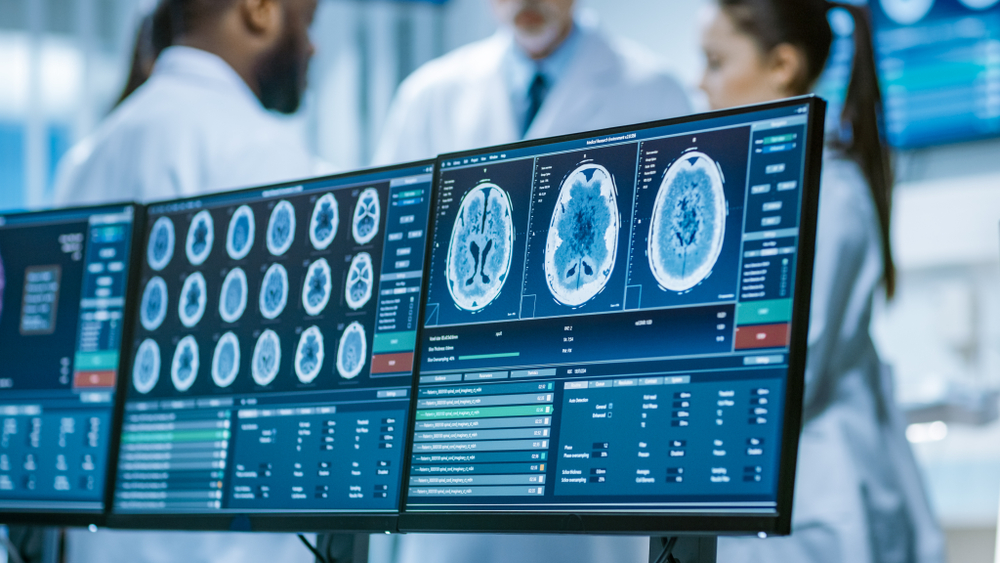
1. Testing
On your first appointment, we perform the qEEG and ECG/EKG. These tests are simple and painless and done right in our office. For the EEG, we place a cap on your head to measure the electrical activity in your brain and map out any areas not performing as they should. Additionally, in the EKG, we attach a simple electrode to your chest to record the heart’s electrical signals and measure the brain/heart coherence.
Once we complete the tests, our team will carefully analyze the results. Based on this analysis, we develop a treatment plan customized to your specific condition and schedule your assessment period of treatment.
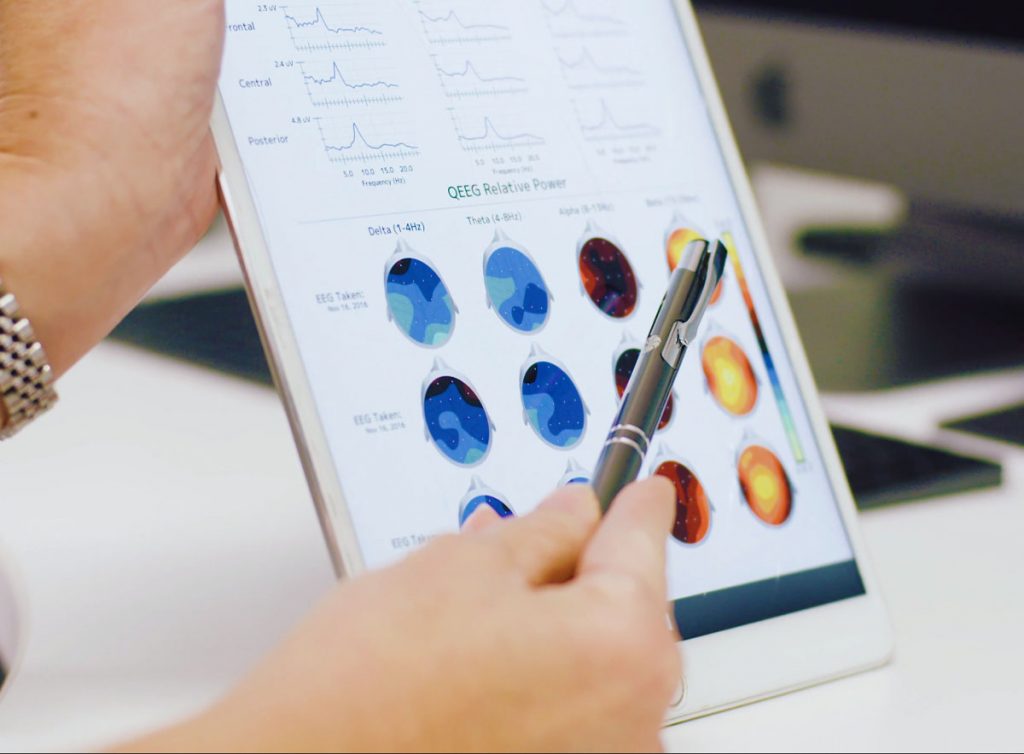
2. Consultation
Your second appointment, after your qEEG/EKG, is a one-on-one consultation. You can do this either in person or virtually from the comfort of your home. We will discuss your test results and treatment protocols, answer any questions you may have, and let you know more about what to expect during your assessment period of treatment. Should you choose to go ahead with the assessment period, the cost of the qEEG and consultation will go toward the assessment period pricing.
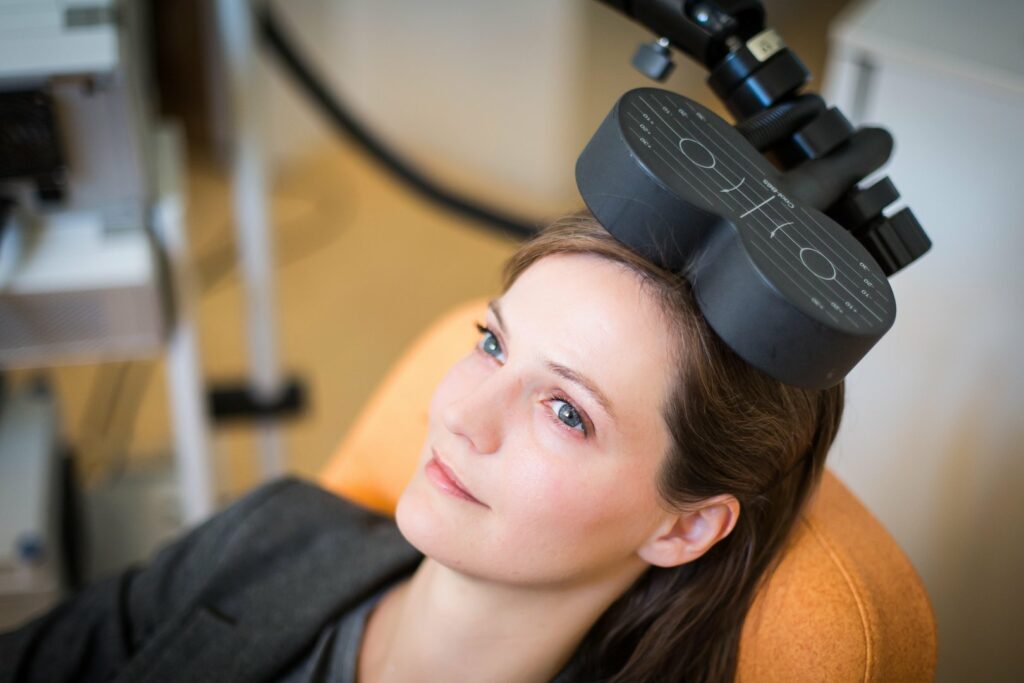
3. Assessment Period
In the two-week assessment period, we will perform a short course of treatment followed by a new EEG to see how you are responding. The first week of treatment will last for five days, Monday through Friday. The second week of treatment will last for four days, Monday through Thursday, followed by new testing on Friday.
We determine progress based on the new EEG results compared to the initial one done and symptom improvements.
If there is a positive response to treatment during the assessment period, you will have likely noticed some improvements starting to take place. At that point, we will schedule additional treatment in two-week intervals.
Most conditions treated show noticeable and long-lasting results after six weeks of treatment. However, each patient is different, and your results may vary.

No matter the symptoms, there is hope for your depression. The MeRT treatment plan is highly individual. By improving brain communication, we can achieve significant improvement.
Call our New Patient Coordinator
Or fill in the Contact Form Below
If you are feeling suicidal, please call 911. You can also call the 988 Suicide & Crisis Lifeline by simply dialing 988.
Symptoms of Major Depressive Disorder
According to the World Health Organization, Depression, also called Clinical Depression or Major Depressive Disorder, affects around 5% of adults worldwide. It can have a range of symptoms with varying degrees of severity. These can include:
- Loss of interest in activities and relationships
- Feelings of sadness, hopelessness, or emptiness
- Loss of sex drive
- Insomnia, or sleeping too much
- Emotional outbursts, even over insignificant matters
- Chronic mental and/or physical exhaustion
- Changes in appetite
- Increased anxiety
- Agitation or restlessness
- Feelings of worthlessness
- Low self-esteem
- Short-term memory loss
- Inability to think straight
- Fixating or ruminating on failures or past events
- Physical symptoms such as back pain, neck pain, or headaches with no known cause
- Chronic feelings of unhappiness
- Feeling “numb”
- Feelings of isolation
- Thoughts of suicide
- Attempts at suicide or death by suicide

Call our New Patient Coordinator
Or fill in the Contact Form Below
Contact Our New Patient Coordinator for more information
We understand how difficult and concerning it can be to be dealing with Depression symptoms. We also know that you may have many questions about whether rTMS or MeRT would be the right treatment for you or your loved one.
Before making any decision about starting treatment, there are some simple steps to determine if you will benefit from this treatment — some non-invasive diagnostics and a consultation with our doctor.
And before even that, a consultation with our New Patient Coordinator can help to better understand the various steps and how it all works.
She is here to answer all your questions and explain our protocols. She can also assist you in getting scheduled should you decide to move forward with the initial testing and consultation.
Contact Form
For more information or to speak with our New Patient Coordinator, please fill in the information below.